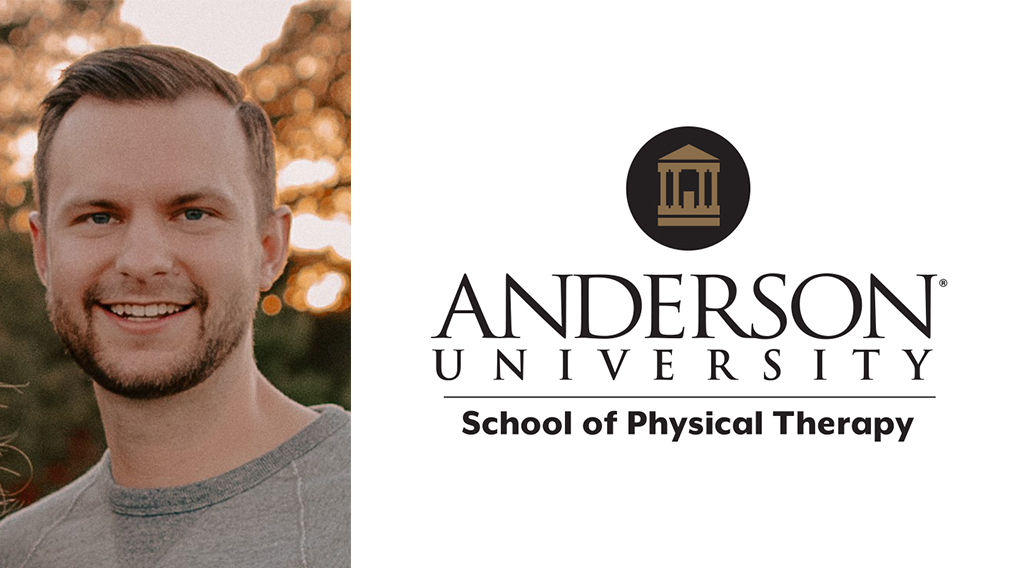A sports injury helped direct Nicholas Hattaway towards a profession devoted to helping others move and live better.
This December, Nicholas Hattaway is among the first students set to graduate from the Doctor of Physical Therapy program at the Anderson University College of Health Professions.
When Hattaway was hurt while playing basketball in high school, his coach suggested he get checked out by a physical therapist. Up to that point he was unfamiliar with physical therapy.
Hattaway knew he wanted to pursue a career in health care, though being a doctor or surgeon didn’t appeal to him. While going through physical therapy two or three days a week, he became fascinated by the process of helping patients work through their pain towards restored mobility.
“I was interested in Anderson University at the time. A lot of my friends who were at AU were talking about how nice the faculty was and were really enjoying it,” Hattaway said. “When I was looking at colleges I went on their website and saw they had an undergraduate degree in kinesiology and that they had a pre-physical therapy concentration.”
Not seeing many institutions offering a pre-physical therapy program, Hattaway enthusiastically enrolled at Anderson. He became involved in the Kinesiology Club and the Anderson Science Association. He was also shadowing physical therapists and taking courses that would give him an advantage in his further studies.
“Luckily at the time one of my professors was a physical therapist,” Hattaway said. “Dr. Chris Hopkins was a really good influence.”
Hattaway feels his undergraduate work prepared him for a more seamless transition into the Doctor of Physical Therapy (DPT) program offered by the Anderson University College of Health Professions. Hattaway’s shadowing experience prior to physical therapy school took place in a variety of inpatient and outpatient settings such as a hospital skilled nursing facility, and he had already taken several DPT-level courses. He did his clinicals at a small regional hospital and a locally owned clinic while in his DPT program.
“I enjoyed the courses, but they were tough; that helped me tremendously, because in your first few classes in the AU physical therapy program you have anatomy, biomechanics and physiology,” said Hattaway. “The undergraduate pre-physical therapy concentration prepared me very well; It was almost like a review, but at the same time I had more tools than my classmates who were unfamiliar with the territory.”
Looking forward to his upcoming graduation, Hattaway says he’s “still an open book” and is considering several options. One possibility Hattaway is considering is developing a sort of injury prevention program for young men and women entering the military.
“Typically those who go into basic training are just normal high school kids, so they don’t really have any formal fitness training or evaluation. They just go and start running and lifting and all this other stuff they’re not used to and then they get overuse injuries,” Hattaway said. “If I can help them better prepare their bodies for that type of work and help them prevent injuries, that’s something I’m really interested in.”
Of his DPT program at Anderson University, Hattaway said that he’s learned there’s much more to the patient than just a diagnosis.
“That patient can come in with all kinds of baggage, whether it be emotional baggage or just some type of unfortunate situation they’re in, so they’re really learning how to empathize with our patients versus just surface level interaction and the treating of the injury,” Hattaway said.
His advice to others considering a physical therapy career is “focus on really connecting with your patients so that at the end of the day you’re a human helping out another human.”

